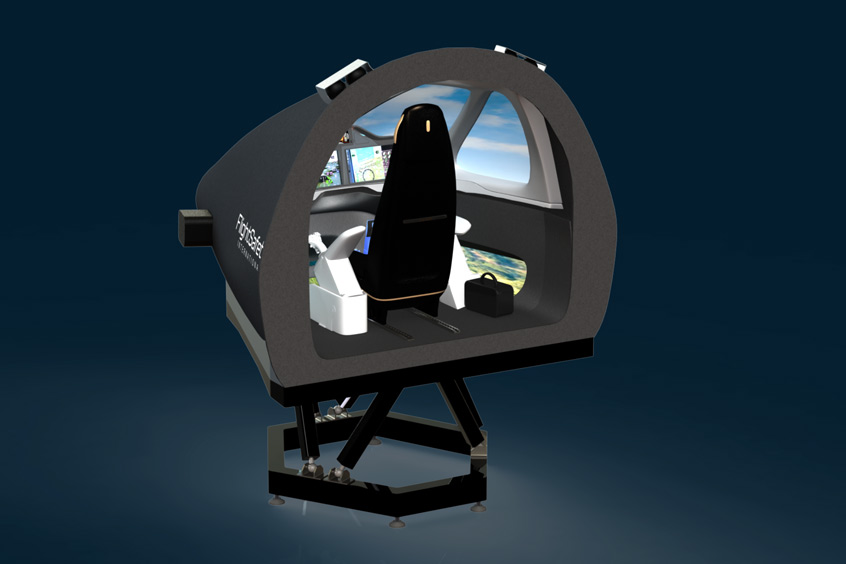ACE 2026 - The home of global charter.
 The bimonthly news publication for aviation professionals.
The bimonthly news publication for aviation professionals.

Lilium has entered into an agreement with FlightSafety International (FSI) that establishes the aviation training company as the exclusive developer and provider for flight training devices for the Lilium Jet. This will include immersive and mixed reality simulators for training, as well as an early flight simulator representative of the Lilium Jet cockpit to be used by the OEM's engineers.
The simulator, known as the e-Sim ('e' for engineering), will be integrated into Lilium's ground-based aircraft systems integration laboratory (SiLab) and used as part of testing and certification of the revolutionary Lilium Jet. The e-Sim will be an important asset in the Lilium Jet development programme, enabling pilot familiarisation before the start of flight testing and an appropriate environment for the verification of aircraft requirements. The e-Sim will also support type certification of the Lilium Jet by providing means of compliance for demonstrating that the aircraft conforms to certification requirements.
Lilium CCO Sebastien Borel says: “This partnership represents another critical milestone that will support the Lilium Jet's progress through certification and commercial launch. Thanks to FSI's vast experience and expertise in the field of aircraft simulators, we look forward to enabling all Lilium pilots to get familiar with our aircraft before commercial launch.”
Additionally, FSI will develop and deliver training programmes, including online training programme modules, for qualification of future Lilium pilots and mechanics worldwide. FSI continues to support the emerging advance air mobility (AAM) market with innovative and cutting-edge technology to support distance learning training curriculums and the latest advances in training device manufacturing.
EVP sales and marketing Nathan Speiser says: “It is our mission to deliver best-in-class pilot training globally, while working with new partners to bring new, sustainable modes of transport with cost effective training capabilities. We are excited to be working with leading eVTOL manufacturer Lilium to advance and deliver training that empowers and prepares pilots for the world of eVTOL flight.”
FSI operates the world's largest fleet of advanced full flight simulators at Learning Centers and training locations in the United States, Canada, France and the United Kingdom. FSI has manufactured simulators for Airbus, Boeing, Bombardier, Embraer and many other commercial aircraft manufacturers. FSI's training devices are approved by the FAA, EASA and other aviation regulatory authorities worldwide.
Qualification of the first training devices and development of training programmes will be supported by the expertise of Lufthansa Aviation Training (LAT).